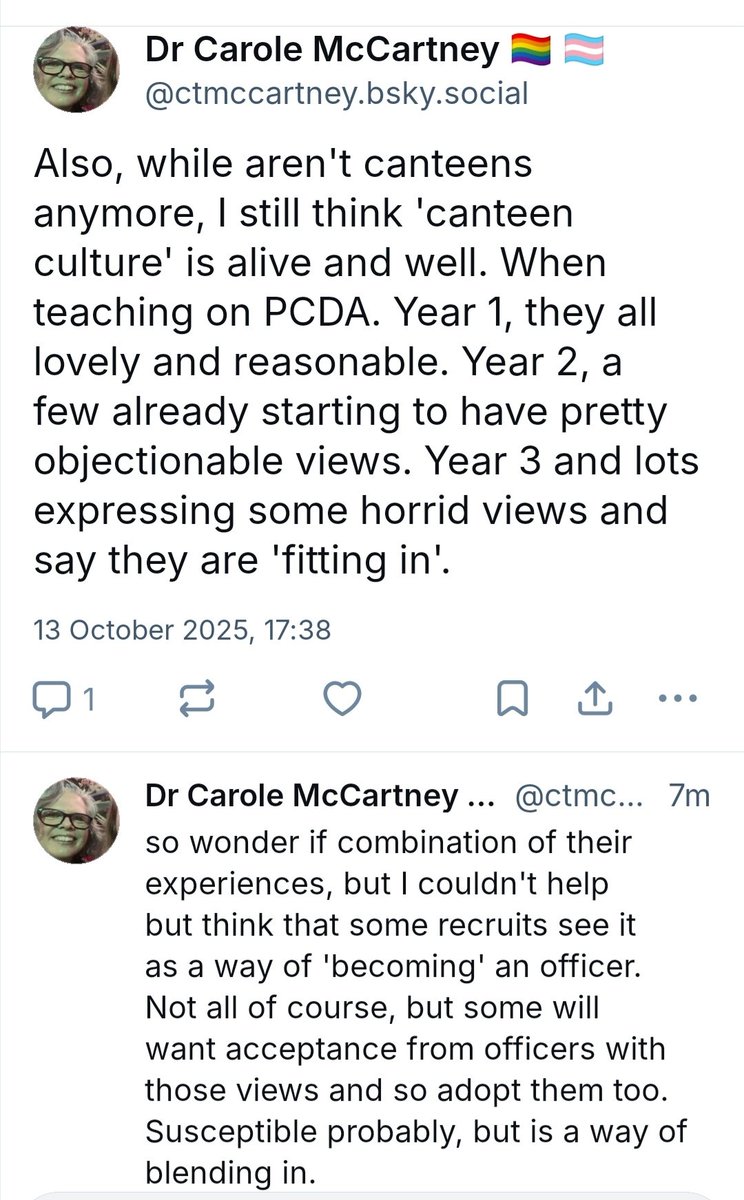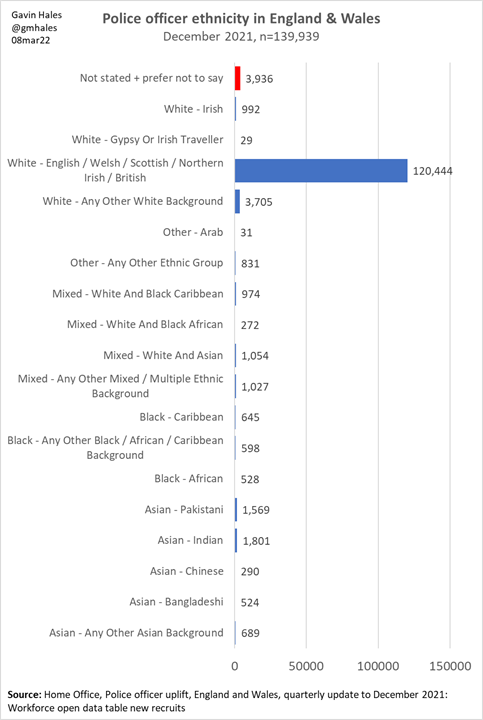
Researching/discussing policing, crime and the CJS. Senior Associate Fellow @the_police_fdn.
How to get URL link on X (Twitter) App


https://twitter.com/gmhales/status/1331253381671886848This links to the notion of 'blue-tinted spectacles', described to me some years ago by a serving officer
https://x.com/gmhales/status/1664903527766933504?t=lxSxq41ZAA0F_DXhmWSJng&s=19

 Handily, the Home Office publishes an 'ethnic disparities time series dashboard' for stop and search. Here's Greater Manchester Police. Note how in the top R chart black/white disparity increases to a cliff edge after 2019/20. #stopsearch assets.publishing.service.gov.uk/media/66f44156…
Handily, the Home Office publishes an 'ethnic disparities time series dashboard' for stop and search. Here's Greater Manchester Police. Note how in the top R chart black/white disparity increases to a cliff edge after 2019/20. #stopsearch assets.publishing.service.gov.uk/media/66f44156…


 I can provide this kind of analysis because I've been collating an archive of the quarterly updates over the last 2 yrs, something I'm not aware anyone else has done.
I can provide this kind of analysis because I've been collating an archive of the quarterly updates over the last 2 yrs, something I'm not aware anyone else has done.

 Second, the % change to the overall police workforce, again on a headcount basis, between March 2010 and March 2022 (the 2023 figures haven't yet been published).
Second, the % change to the overall police workforce, again on a headcount basis, between March 2010 and March 2022 (the 2023 figures haven't yet been published). 

https://twitter.com/DameLynneOwens/status/1567774079473618944My feeling is that police leaders could do much more to highlight how *counterproductive* this can be.



 Partly because if I leave it too long it'll cease to be interesting or relevant, and partly because it relates to the legacy of Cressida Dick and the question of the efficacy of stop and search, which was increased during her tenure as Commissioner.
Partly because if I leave it too long it'll cease to be interesting or relevant, and partly because it relates to the legacy of Cressida Dick and the question of the efficacy of stop and search, which was increased during her tenure as Commissioner. 
https://twitter.com/gmhales/status/1501530469418033157?s=20&t=PZzBLDF9eZju_WCYXuvK3Q
https://twitter.com/vernalscott/status/1501823866745802755I've heard from a number of officers that the lack of a Black British option in monitoring eg stop and search has caused issues with members of the public feeling their self-identity is not reflected in/respected by police systems.


 Here's Asian representation - this is the % of police officers in each force.
Here's Asian representation - this is the % of police officers in each force.

 The same data indexed to 2007.
The same data indexed to 2007. 

 The researchers note that victims who disclosed (they use the word 'reported', but I'm not sure that's accurate) rapes in response to DASH questions were 3x as likely to withdraw than victims who reported in other ways.
The researchers note that victims who disclosed (they use the word 'reported', but I'm not sure that's accurate) rapes in response to DASH questions were 3x as likely to withdraw than victims who reported in other ways.
https://twitter.com/gmhales/status/1470087337849860103(2) I feel like policing has had relatively little to say about doing policing *with not to* Black communities - which in many cases are more vulnerable/victimised. In the Met, the model of specialist units being sent in to do stop and search is arguably an example of doing to.

 A very wide range of charge rates (as at July 2021: these data are periodically refreshed).
A very wide range of charge rates (as at July 2021: these data are periodically refreshed). 

 Second, a closer look at knife homicides by month over the same period.
Second, a closer look at knife homicides by month over the same period.